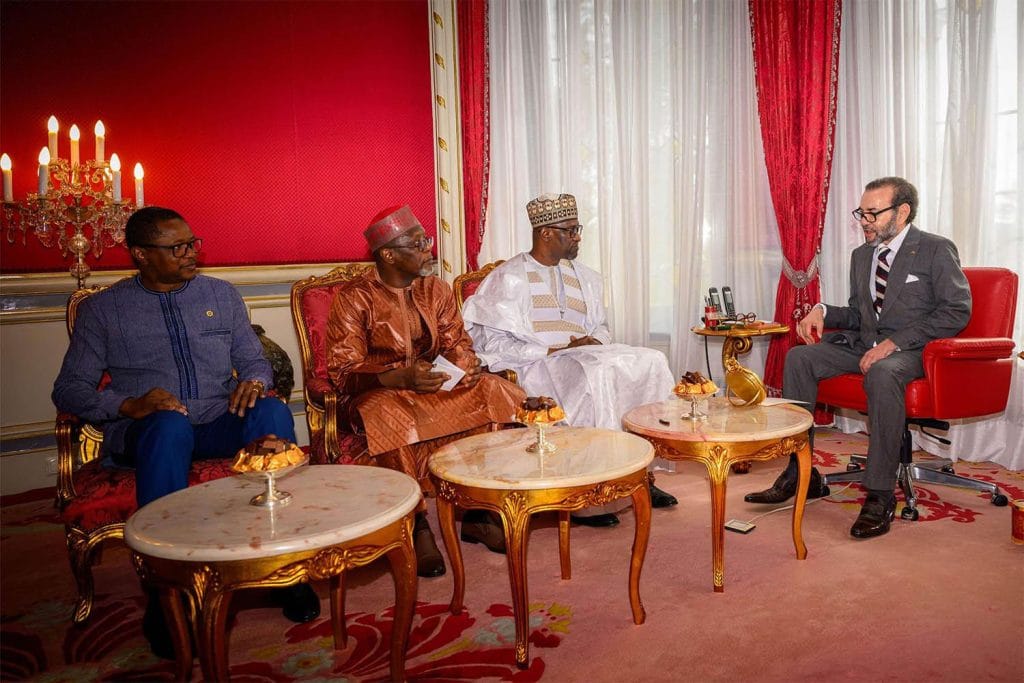The foreign ministers of Burkina Faso, Mali, and Niger have formally endorsed Morocco’s plan to provide the landlocked Sahel nations with access to international trade through Atlantic ports, marking a notable shift in regional dynamics and alliances.
The endorsement came during an official visit to Rabat, where the ministers held talks with Morocco’s King Mohammed VI. According to Morocco’s state news agency, the meeting reflected the growing cooperation between the Kingdom and the three West African countries, which now form the Confederation of Sahel States (AES).
The three nations withdrew from the Economic Community of West African States (ECOWAS) last year after military takeovers triggered regional sanctions and diplomatic isolation. In the aftermath, they formed the AES bloc, seeking alternative partnerships and trade routes to bypass restrictions imposed by the regional body.
Morocco first introduced the Atlantic port access initiative in November 2023, shortly after ECOWAS tightened trade controls on the AES members. As a major investor in the region, especially in agriculture and banking, Morocco is leveraging its infrastructure to build new corridors of influence.
Malian Foreign Minister Abdoulaye Diop emphasized the importance of the proposal, stating it would help the AES states “diversify our access to the sea.” For landlocked nations grappling with sanctions and dwindling regional support, the corridor offers a critical economic alternative.
The meeting also underscored Morocco’s deepening ties with the AES bloc, amid broader geopolitical friction in the region. Relations between the AES and Algeria, Morocco’s long-standing rival, have been increasingly strained. Algeria supports the Polisario Front’s claim to independence in Western Sahara, while Morocco considers the territory an integral part of its nation and is investing $1 billion to develop a major port in the area.
Meanwhile, the AES alliance has expelled French and Western military forces and turned toward Russia for security cooperation—reshaping the region’s strategic posture. In a related diplomatic move, Morocco in December played a mediating role in securing the release of four French nationals detained in Burkina Faso, months after Paris recognized Rabat’s sovereignty over Western Sahara.
As the Sahel continues to navigate political upheaval and economic pressure, the Morocco-backed trade corridor signals a new era of regional realignment—centered not only on access to markets but also on sovereignty and emerging partnerships.



